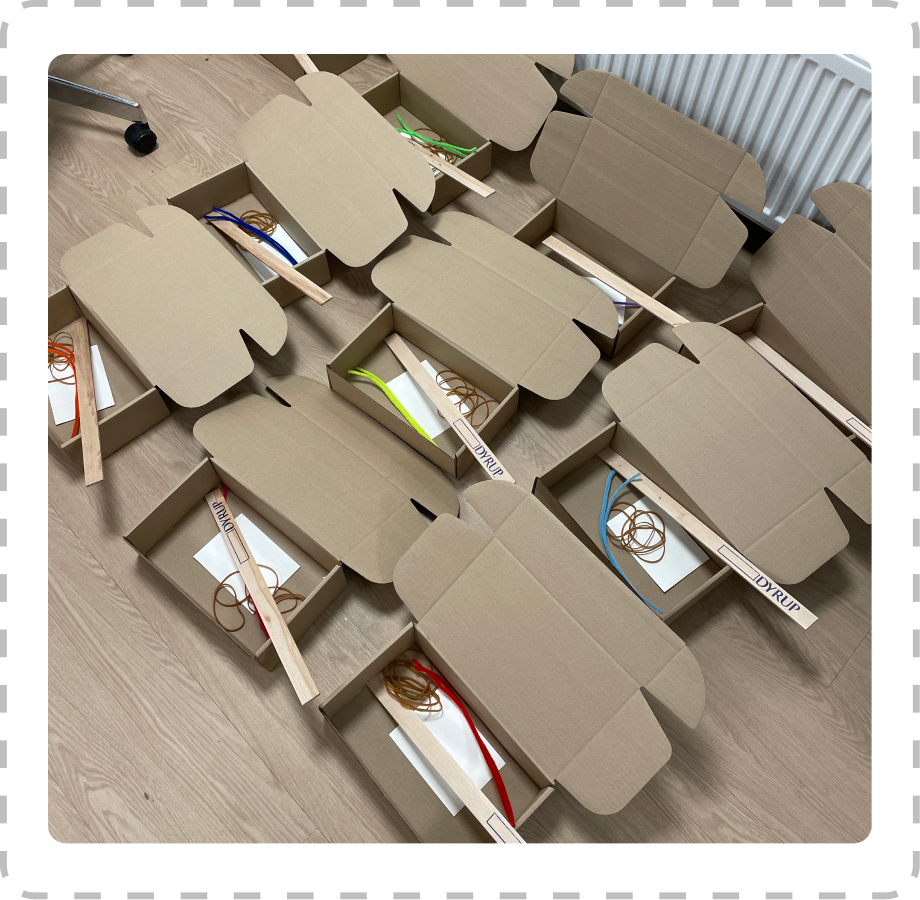Sounds of History
Service Design | User research
September – December 2022
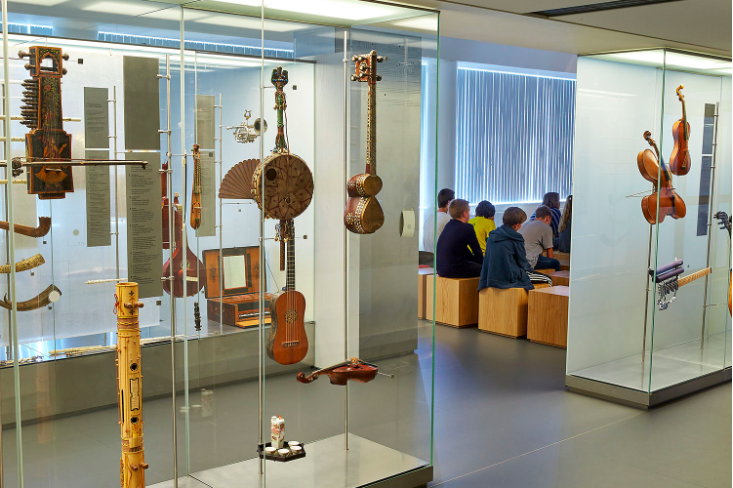
My Role
The Problem Area
The Danish Music Museum is facing the challenge of providing a playful learning experience to students visiting it. Showcasing a collection of 4000 non-playable and non-touchable instruments from around the world is not enough to give the children an experience that can move their hearts, minds and souls. The museum aspires to be an alternative playful learning space that provides new ways of interaction and become the doorstep into a magic world. Thus, there is a need of finding a creative solution that will bring to the young visitors a playful and enjoyable learning experience that goes beyond the time at the museum.
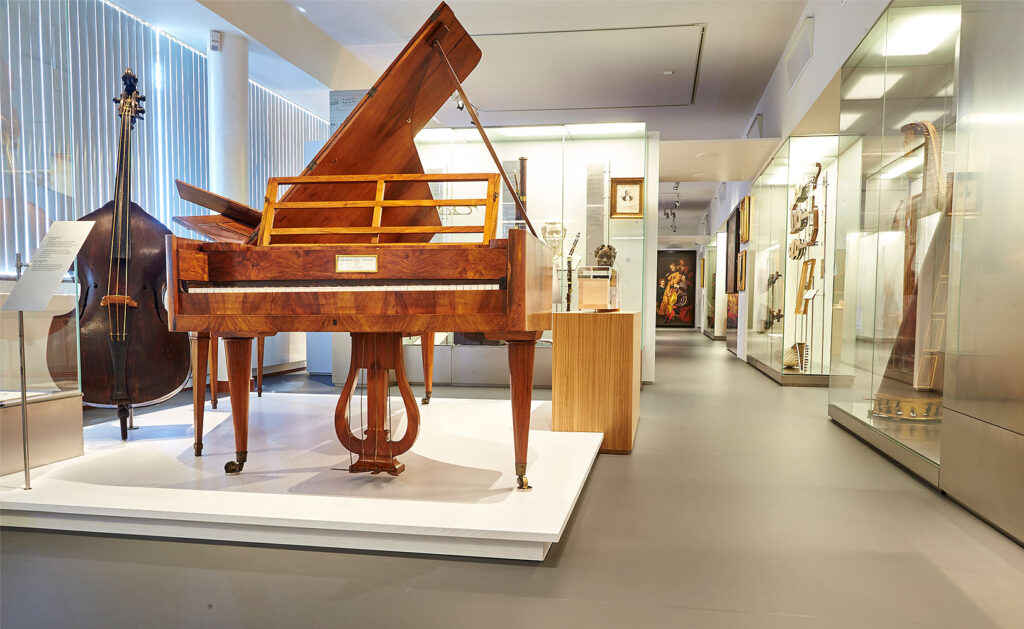
There is an expectation that the Music Museum is a place to play instruments. But this is a museum of mummies.”
Museum’s Teacher and Development Manager
But... How to create a playful learning experience?
The Concept
“Sounds of History” is a unique service designed to enhance the children’s museum experience through engaging learning activities. This innovative program enables children to build playable replicas of otherwise unplayable exhibit instruments using everyday materials.
a hands-on and tangible immersive activity...
Pre-visit
1. Receive a toolkit at school
2. Build the instruments in a school workshop
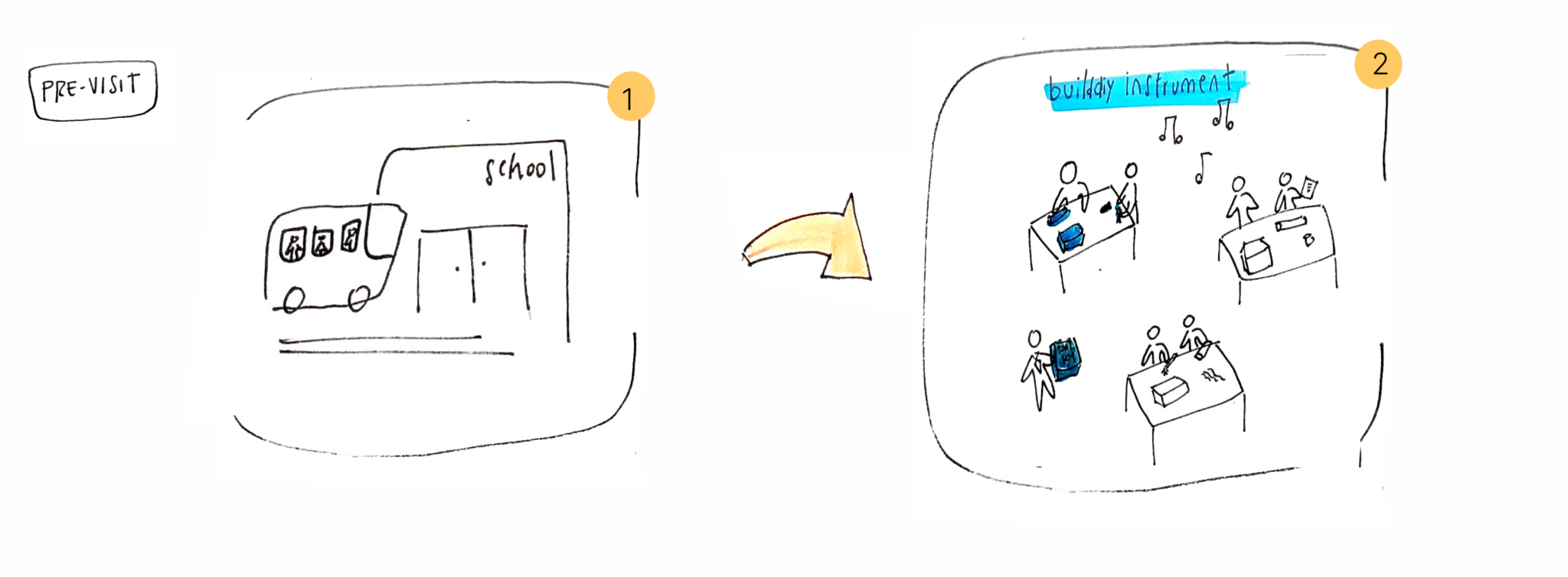
Visit
3. Bring the instruments to the music museum
4. Compare and play the DIY instruments at the museum during the guided tour
5. Take a group's picture
6. Build the artist’s archive wall at the museum
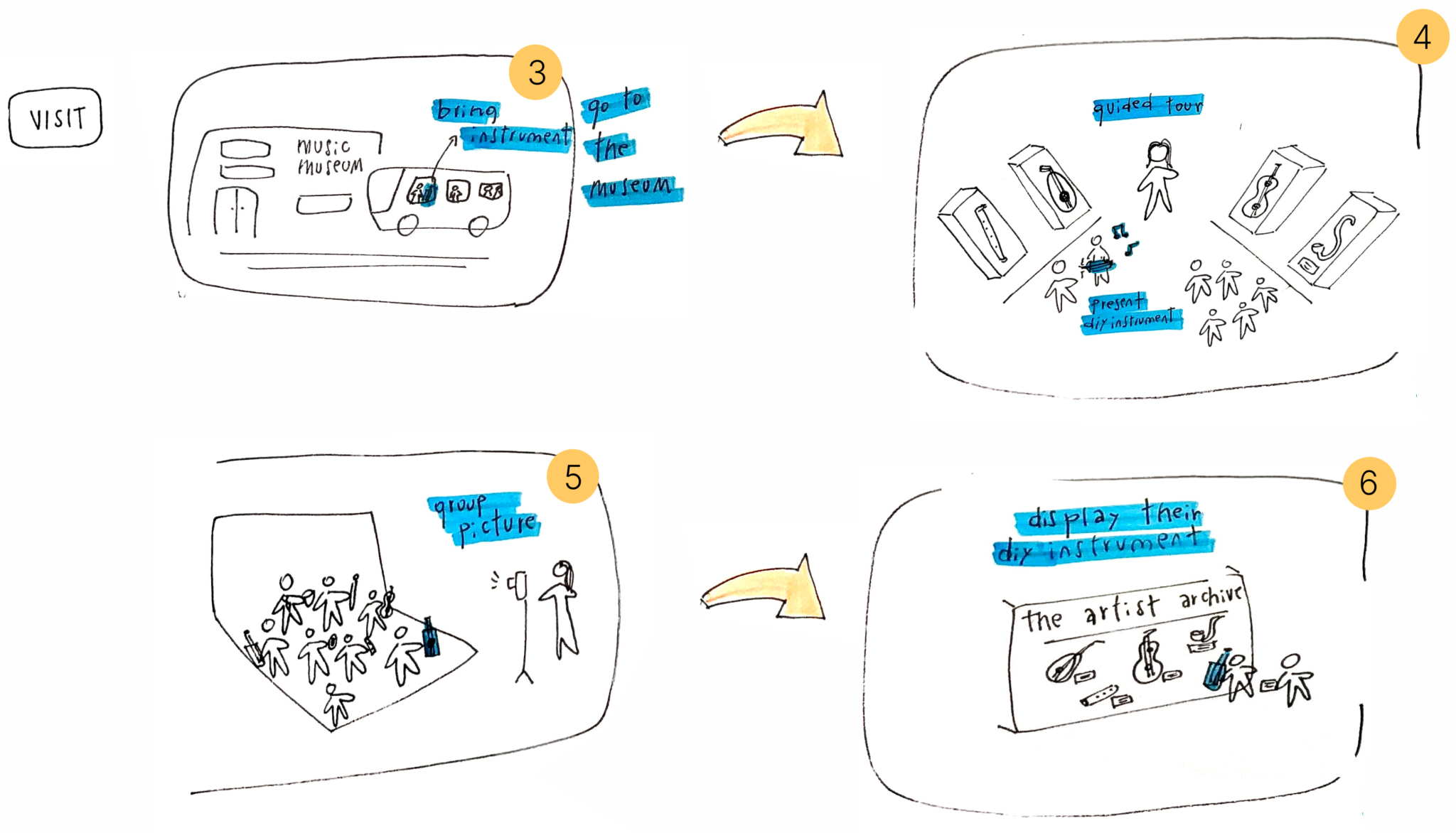
Post-visit
7. Take a quiz about the visit and get the group picture as a prize

... with a complex and detailed system behind it:
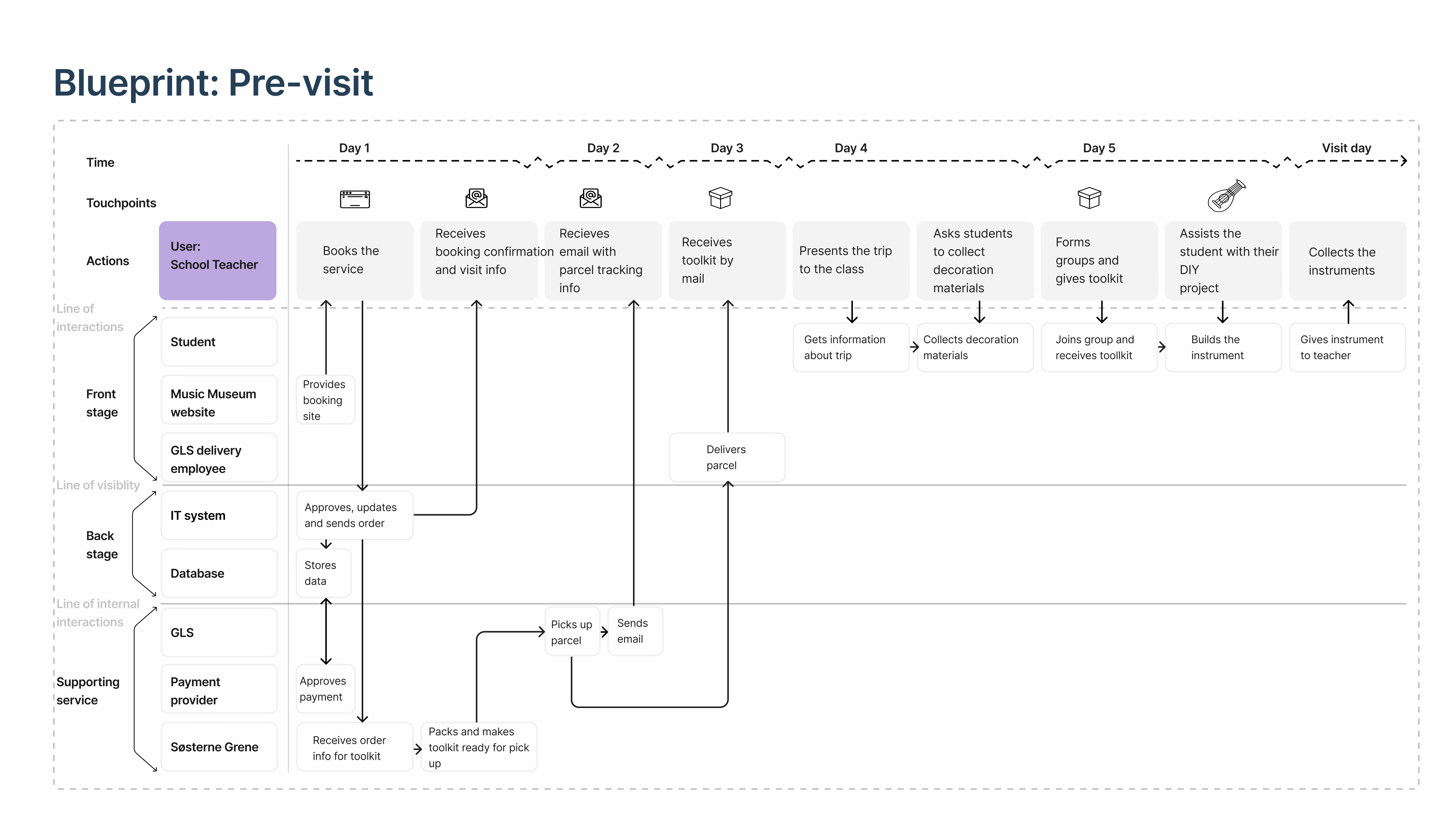
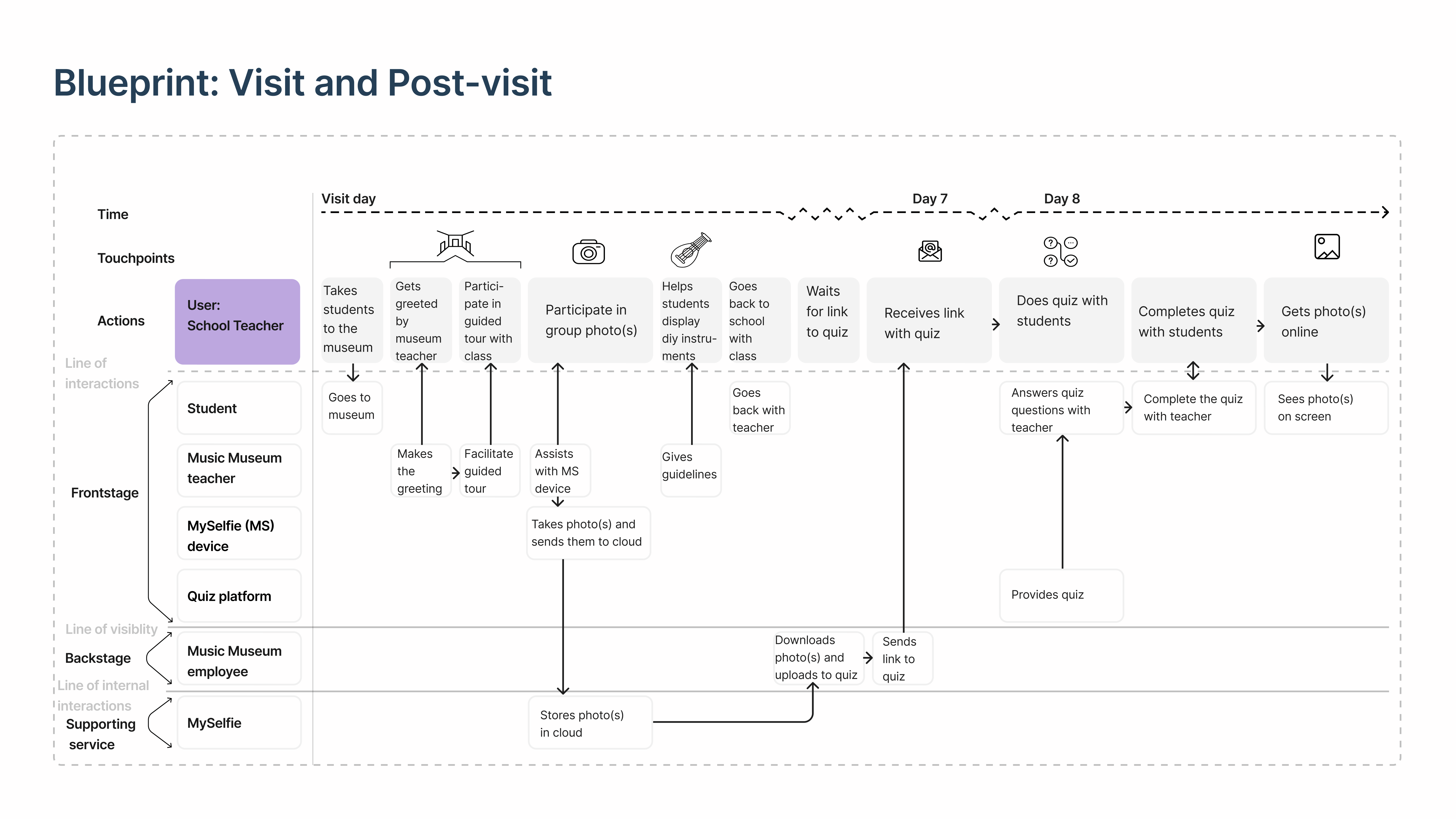

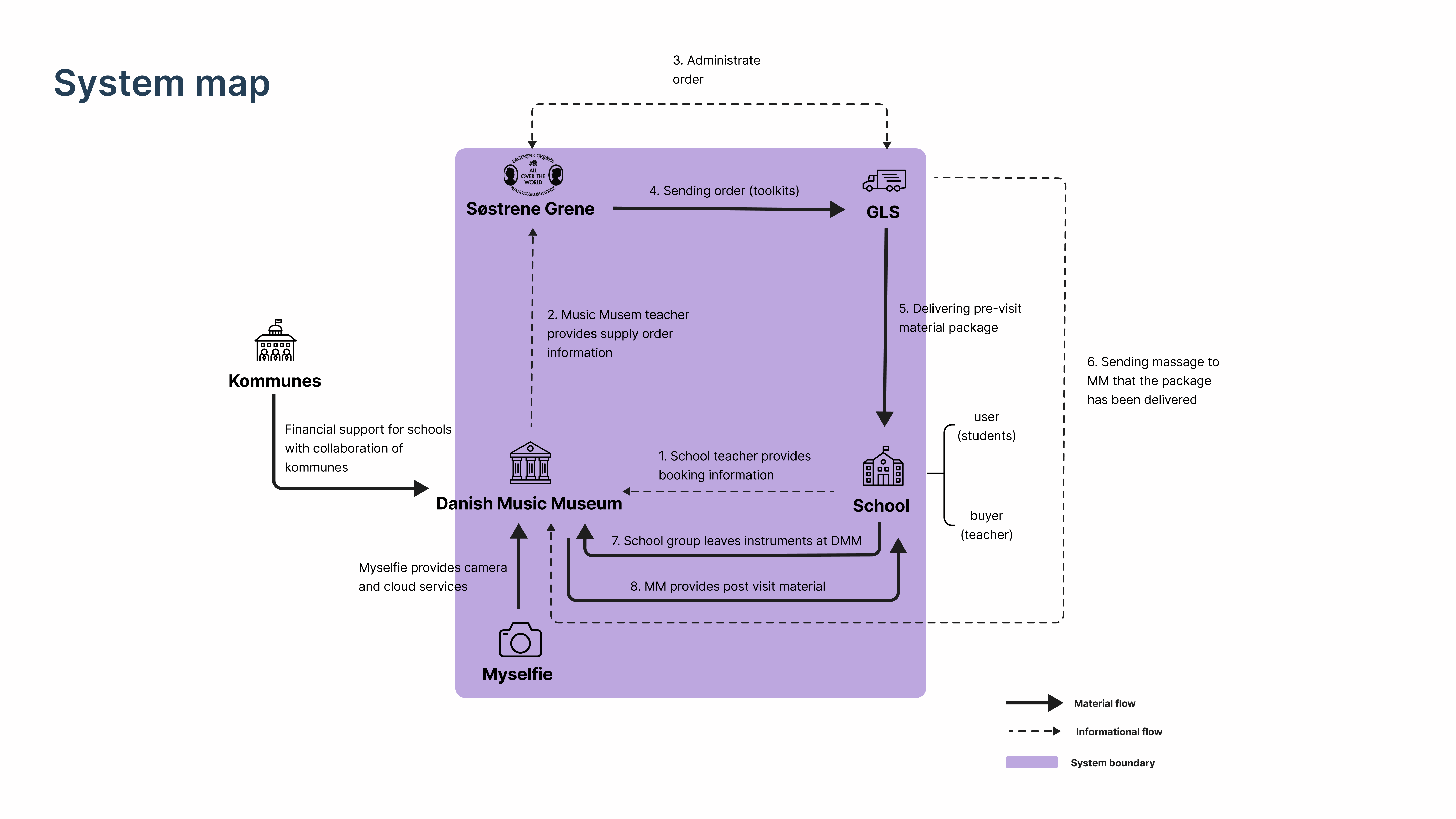
A Sneak-Peek of the Design Process
As children go through their formative years, their understanding and assimilation of “play” undergo significant shifts. Hence, the users of this service were precisely defined: children aged between 8 and 12 years old.
Designing for children demands...

- A nuanced and empathetic approach
- To set aside adult assumptions
- Attentively tune into the voices of children
How?
… by listening to their stories about museums, games, and leisure activities; by observing them across three different museums and by collaboratively prototyping the service with them.
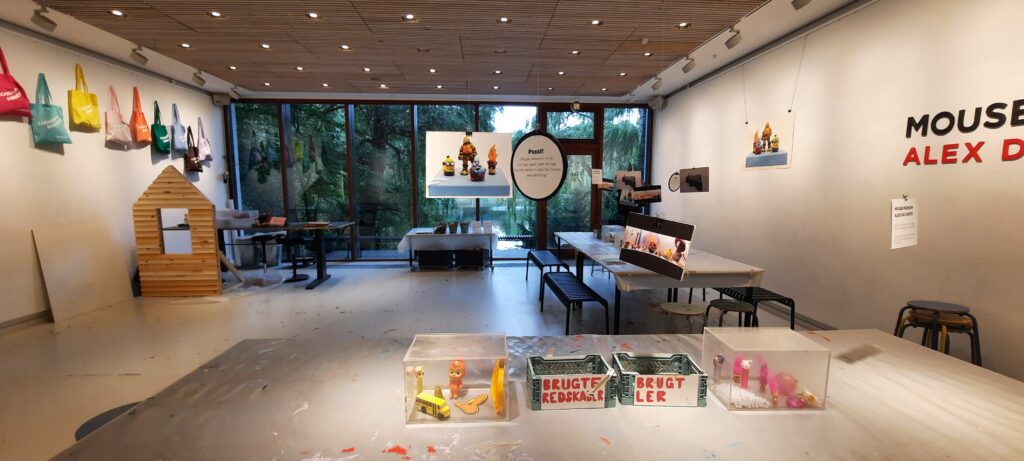
My favorite museum in the world is Lousiana, because it’s giant! I can play, I can do tatoos with a special pen. I can do whatever I want there.
L., 8 years
Thanks to the nuanced child-centric research approach ...
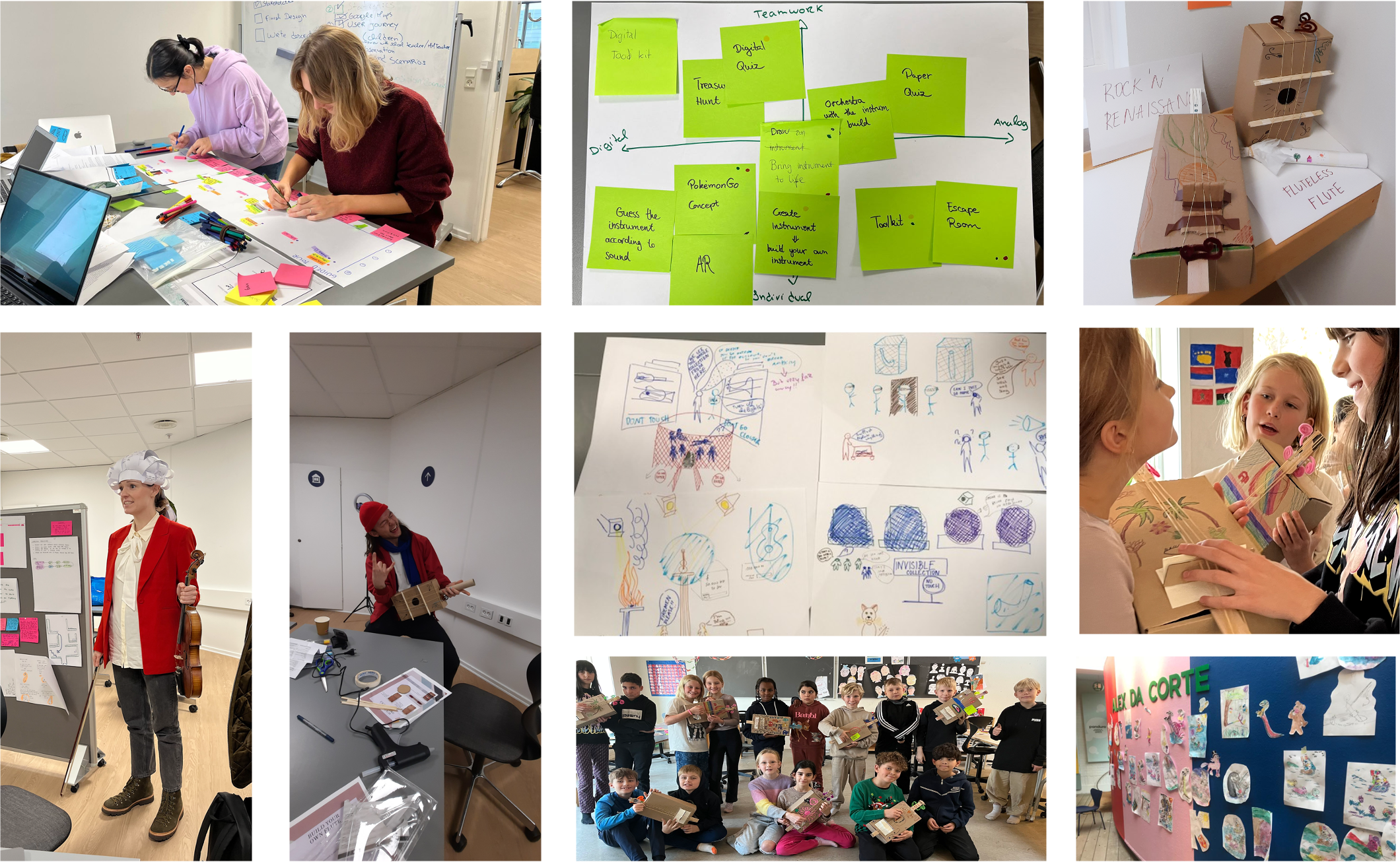
...seven ways of providing a playful learning experience were uncovered:
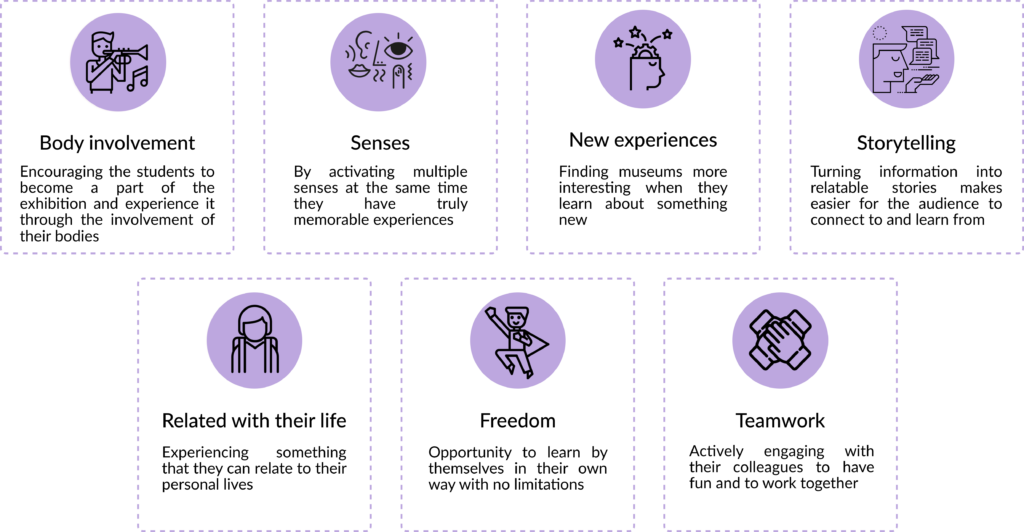
that allowed to create a service with the value of...
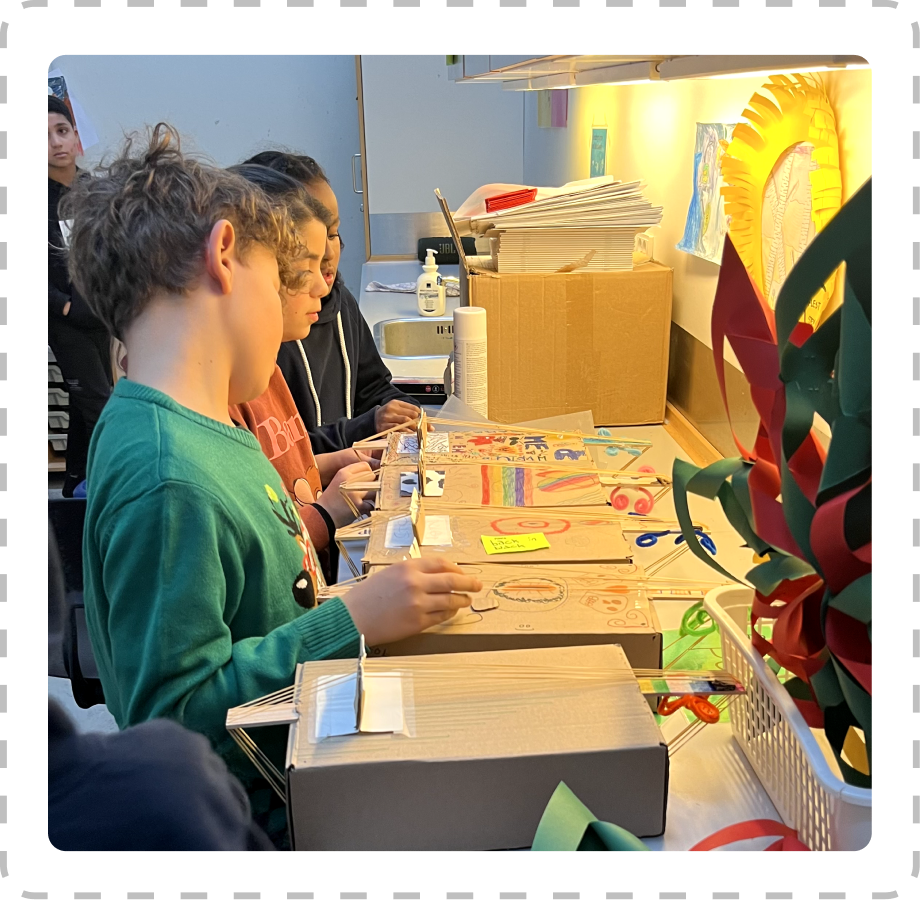
Connecting the pre-visit, visit and post-visit

Making the unplayble playble
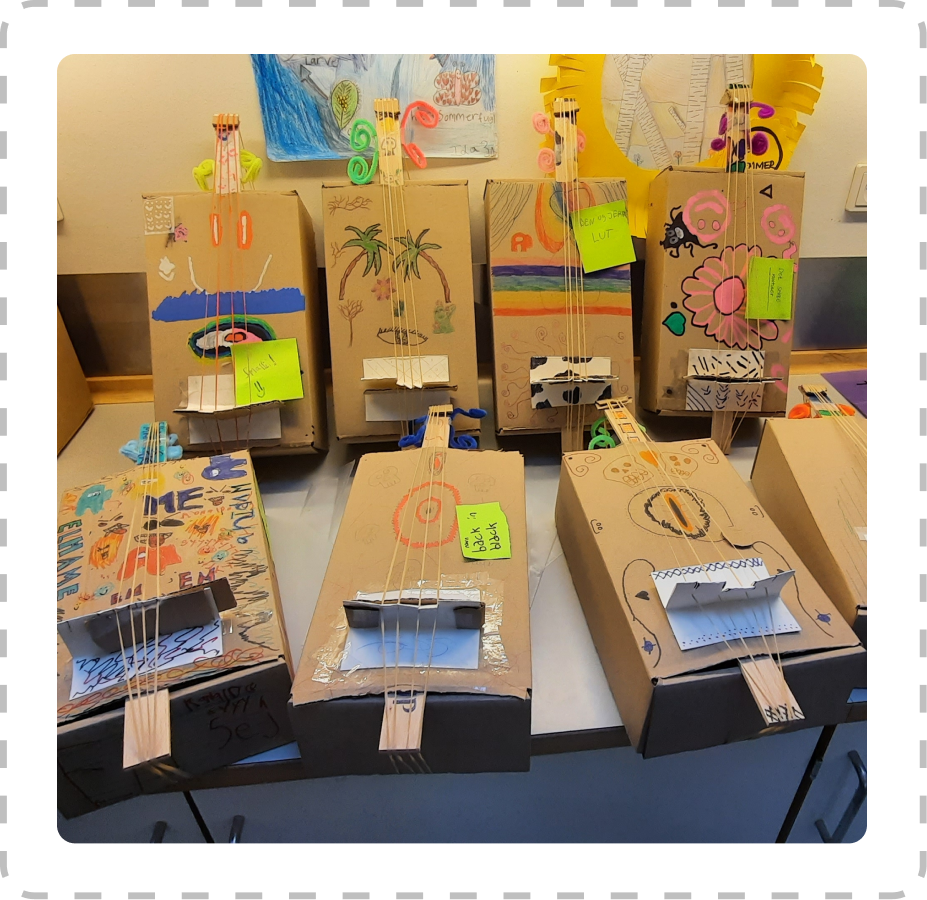
Creating a new exhibition area at the museum
